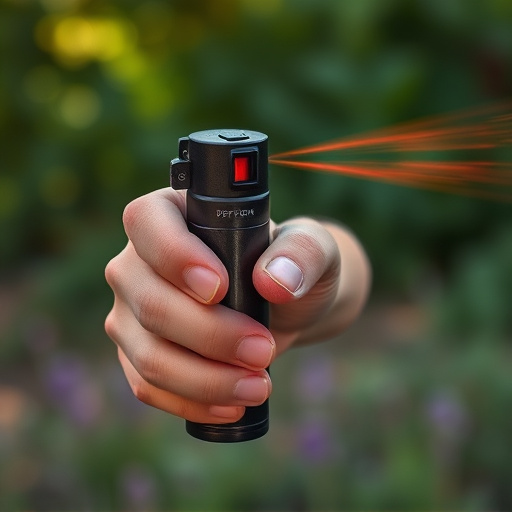This guide provides immediate, effective strategies for treating pepper spray exposure, emphasizing key steps like thorough eye washing with water for 15 minutes, removing contaminated clothing, and applying cool compresses. It recommends using over-the-counter antihistamines for itching and inflammation while ensuring adequate hydration and rest to aid recovery. Following these steps promptly can significantly enhance comfort and speed up return to normalcy.
Tactical inflammatory spray, or pepper spray, is a powerful defense tool used in various scenarios. Understanding its effects and knowing how to respond is crucial for safety. This article provides an in-depth look at pepper spray exposure, from recognizing symptoms to immediate response strategies. We’ll also delve into effective treatment methods, ensuring you’re prepared with essential knowledge on How to Treat Pepper Spray Exposure. By understanding these aspects, individuals can better navigate potentially dangerous situations.
- Understanding Pepper Spray Exposure: Causes and Symptoms
- Immediate Response to Pepper Spray Attack: Safety Measures
- Effective Treatment and Recovery from Pepper Spray Exposure
Understanding Pepper Spray Exposure: Causes and Symptoms
Immediate Response to Pepper Spray Attack: Safety Measures
Effective Treatment and Recovery from Pepper Spray Exposure
Pepper spray exposure can be a frightening experience, but with prompt and proper treatment, most individuals can recover fully. The first step is to move to a safe location away from the source of the spray immediately. Washing eyes thoroughly with clean water for at least 15 minutes is crucial to flush out any residual pepper spray chemicals. This process helps to alleviate irritation and discomfort.
In addition to eye washing, it’s important to remove any contaminated clothing and wash skin areas affected by the spray using mild soap and warm water. Over-the-counter antihistamines can help reduce itching and inflammation, while a cool compress or ice pack applied gently to the face may provide some relief from pain and swelling. It’s also recommended to stay hydrated and get plenty of rest during recovery, as these measures support the body’s natural healing processes.
Knowing how to treat pepper spray exposure is crucial for navigating unexpected attacks. By understanding the causes and symptoms, responding immediately with safety measures, and seeking effective treatment, individuals can recover from pepper spray exposure more quickly and comfortably. Remember that prompt action and access to proper medical care are key in managing the impact of tactical inflammatory spray defense systems.
